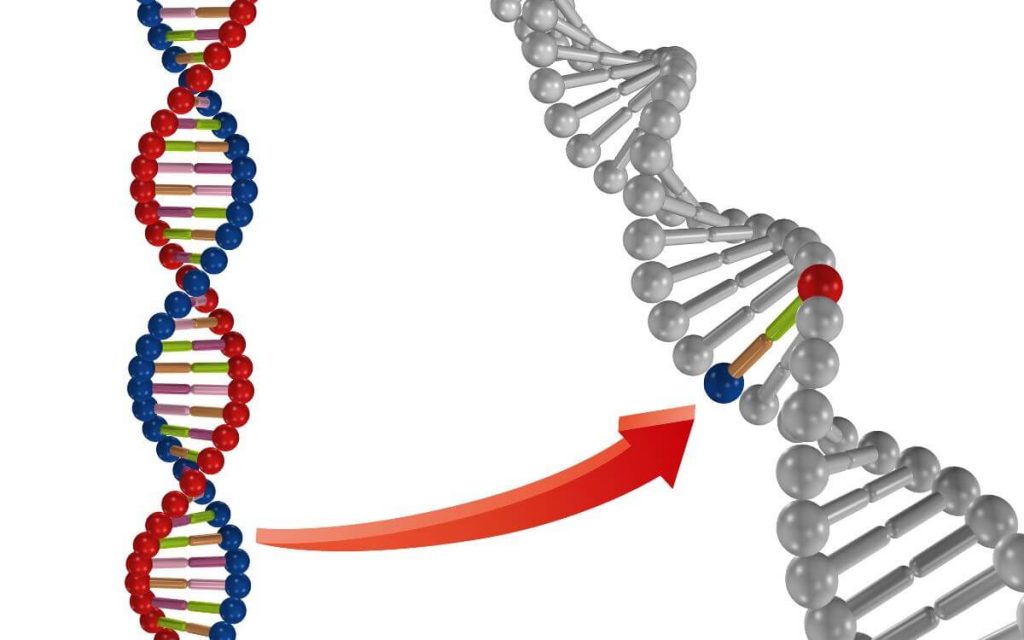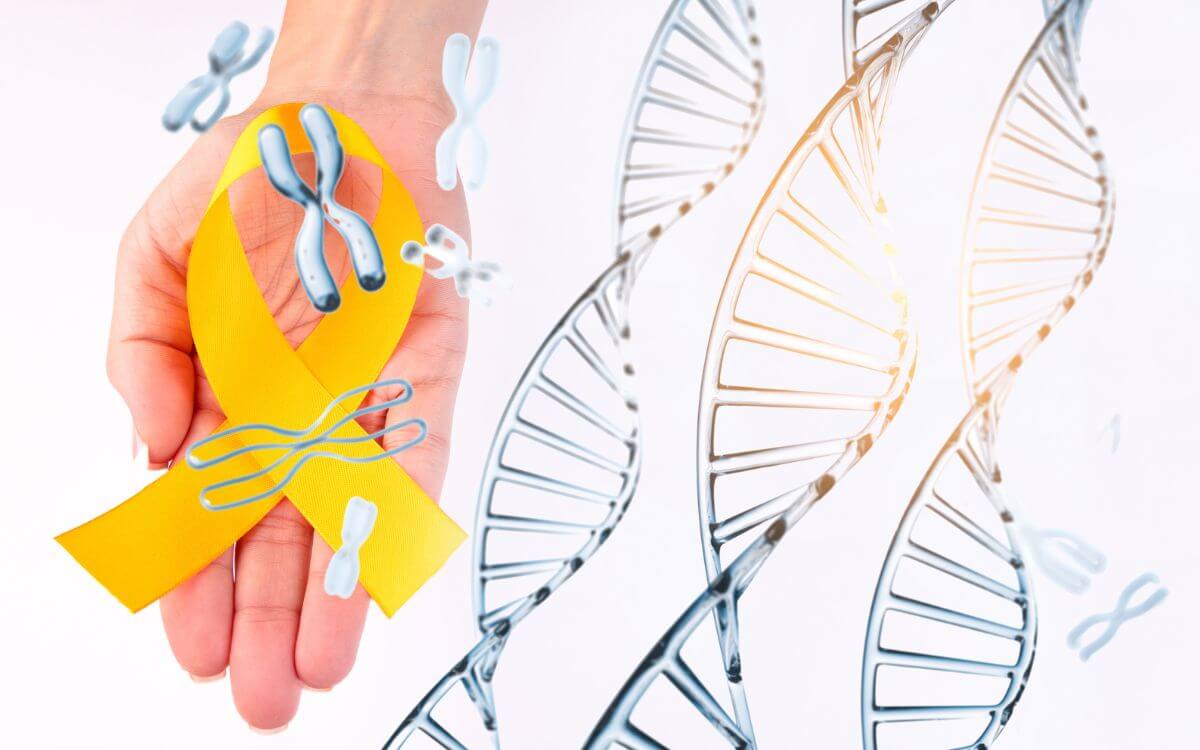Is endometriosis genetic?
At first glance, it’s difficult to say if endometriosis is genetic because there is no definitive answer to this question, the jury is still out on the matter. Some experts believe that there is a genetic component to endometriosis, while others believe that environmental factors play a role in its development.
These environmental factors might include:
- Diet and lifestyle
- Exposure to certain chemicals
- Levels of stress
- Hormonal imbalances
But before we begin, it’s important that I explain what endometriosis and its genetic component are. Let’s get right to it!
What is endometriosis?
Endometriosis is a debilitating chronic disease that affects women of childbearing age. It is characterized by the presence of endometrial-like tissue (similar to the lining of the uterus) outside of the uterine cavity.
This tissue can be found on the ovaries, fallopian tubes, peritoneum (the lining of the abdominal cavity), and in rare cases, other organs such as the brain or lungs.
Endometriosis is a chronic, progressive disease that can result in pelvic pain, infertility, and other health problems. There is no cure for endometriosis, but there are treatments that can help to manage the symptoms.
What we know is that endometriosis tends to run in families, so if you have a mother, sister, or aunt with the condition, you may be more likely to develop it yourself. However, this is not a guarantee, and endometriosis can occur in women with no family history of the condition as well.
So, while there may be a genetic predisposition for endometriosis, it is not clear if this is the sole cause of the condition.
Further research is needed to determine the exact causes of endometriosis. But it has been recently discovered that there could be a connection with a gene called NPSR1.
If you want to learn everything in terms of endometriosis, I give away a FREE Chapter of my “Endo-Tool: Endometriosis for Men” eBook. This chapter alone includes all the comprehensive medical knowledge, such as:
- What is endometriosis?
- What are the symptoms?
- What causes endometriosis?
- What does endometriosis look like?
- What are the stages?
- What are the types?
- What is adenomyosis and how is it related to endometriosis?
- Why do some women develop severe endo and others don’t?
- Does endometriosis cause infertility?
- How is endometriosis diagnosed?
- Do types and stages affect the treatment?
- Recurrence of endometriosis after excision surgery.
FREE Chapter of “Endo-Tool”!
an Endometriosis for Men book

What is NPSR1?
NPSR1 is short for Protein Neuropeptide S Receptor 1 gene, it’s a gene code that is associated with chronic diseases.
This gene is a member of the vasopressin and oxytocin subfamily of G protein-coupled receptors. It is associated with asthma, panic disorders, inflammatory bowel disease, and even rheumatoid arthritis.
NPSR1 is a gene that helps to regulate the production of a protein called neuropeptide Y (NPY). NPY is involved in a number of physiological processes, including the regulation of appetite, pain perception, and inflammation.
A recent study found that women with endometriosis were more likely to have a certain variation of the NPSR1 gene. This variation was also associated with higher levels of NPY in the blood.
What does this mean?
While more research is needed, this study provides preliminary evidence that there may be a genetic link to endometriosis. The study also suggests that NPY could be involved in the development and symptoms of endometriosis.
The link between NPSR1 and endometriosis.
So, can we definitely say that there is a link between endometriosis and the Protein Neuropeptide S Receptor 1 gene NPSR1?
If you asked me before the spread of Covid-19 is endometriosis genetic I wouldn’t know the answer, but if you asked me the question today, my answer would be definitely yes.
As a husband of a woman with endometriosis, I do a lot of research. I found that endometriosis is thought to be a genetic disorder, meaning, that some women are more likely to get this debilitating disease than others. So yes, there is a connection between endometriosis and NPSR1. It gives women hope for future treatment.
What I knew so far was that endometriosis is caused by abnormal growth of tissue similar to the uterine lining outside of the uterus.
Normally, endometrial tissue responds to the hormonal changes of ovulation and sheds out during periods, but with endometriosis, this similar tissue outside of the uterus has nowhere to shed. This causes pain and discomfort.
After I found updated data showing that endometriosis affects between 10 and 15 percent of women, I also found a scientific link between endometriosis and the Protein Neuropeptide S Receptor 1 gene.
Like any chronic illness, there are most likely multiple causes for endometriosis, such as childhood trauma or environmental factors, but having a family history could help predict and even cure endometriosis in the future.
Since endometriosis is an estrogen-dependent inflammatory disease, it’s only fair to assume that Protein Neuropeptide S Receptor 1 would be eventually linked to endometriosis too. If you wish to go into details about this, I found it through this source.

What is the key cause of endometriosis?
There is no single key cause of endometriosis. there are actually many theories as to what may contribute to the development of endometriosis.
One theory is that endometriosis is caused by a genetic predisposition. This means that certain women may be more likely to develop endometriosis because of their genes.
Another theory is that endometriosis is caused by retrograde menstruation. This is when the menstrual blood flows back through the fallopian tubes and into the pelvis instead of out of the body.
It’s thought that the tissue from the menstrual blood may then implant itself onto other organs in the pelvis, such as the ovaries or the intestines.
There are also a number of other theories, but the exact cause of endometriosis is still unknown.
So, is NPSR1 a key cause of endometriosis?
Looking at the current data, it’s fair to say that NPSR1 plays a role in endometriosis, however, more research is needed to confirm this. In the meantime, if you have endometriosis, there are treatments available that can help improve your symptoms.
Current treatment for endometriosis involves surgery, hormonal therapies, or both. Non-hormonal treatment would be a better solution. The NPSR1/NPS system is genetically validated to be a non-hormonal target for the treatment of endometriosis stages III and IV endometriosis.
Is there a genetic marker for endometriosis?
A genetic predisposition is a possible theory as to what may cause endometriosis, but there is no single genetic marker for endometriosis. However, certain genes have been linked to an increased risk of developing the condition.
These include the genes HLA-DRB1 and CCL2. Women with endometriosis are also more likely to have a family history of the condition.
So, while there is no single genetic marker for endometriosis, certain genes may play a role in the development of the condition.
Taking this into account, it’s fair to say that yes, endometriosis is genetic. But does it mean that some women are more likely to develop the condition than others? Do you develop endometriosis or are you born with it?
FREE Chapter of “Endo-Tool”!
an Endometriosis for Men book

Do you develop endometriosis or are you born with it?
Do women develop endometriosis or are they born with it? This is a question that medical researchers are still trying to figure out.
Endometriosis develops when tissue that looks and acts like the lining of the uterus, called the endometrium, starts growing outside of the uterus. This can cause pain, infertility, and other problems.
Endometriosis can develop after puberty, but it is most common in women in their 30s and 40s. It is estimated that 1 in 10 women have endometriosis. So the answer is yes, you can develop endometriosis later in life. But are you born with it?
Can you develop endometriosis before puberty?
Endometriosis usually starts after puberty, but there have been cases of girls as young as 8 years old being diagnosed with the condition. It is possible that endometriosis is present at birth, but it is more likely that it develops later in life.
So, while you can develop endometriosis before puberty, it is more likely that you are born with the condition.
So, to summarize, if endometriosis is genetic, then it can be passed down from mother to daughter. However, there is no guarantee that endometriosis will be passed down from one generation to the next, as there are many factors that can influence the development of the condition.
There is still much research to be done in this area, but the current evidence suggests that there may be a genetic link for some women with endometriosis.


About Me
Hi, I’m Lucjan! The reason why I decided to create this blog was my beautiful wife, who experienced a lot of pain in life, but also the lack of information about endometriosis and fibromyalgia for men…
